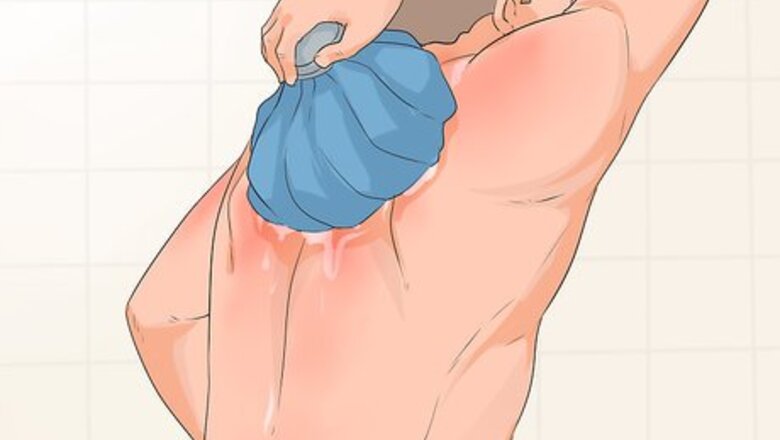
views
Cooling the Skin
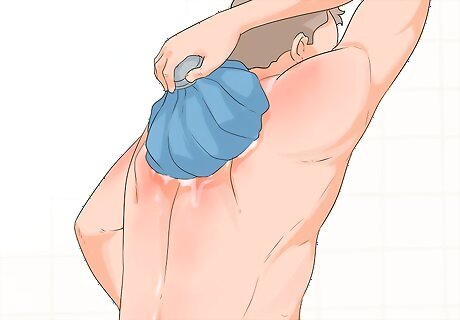
Cool sunburned skin. The easiest way to soothe a sunburn is the most obvious way: Apply something cool to the skin. This won't just feel great, but it also will reduce redness, swelling, and pain. There are many ways to do this. Take a cool shower or bath. Use a cold compress such as ice or a bag of frozen vegetables wrapped in a towel. Rub the skin with an ice cube. Take breaks between applications to avoid damaging your skin.
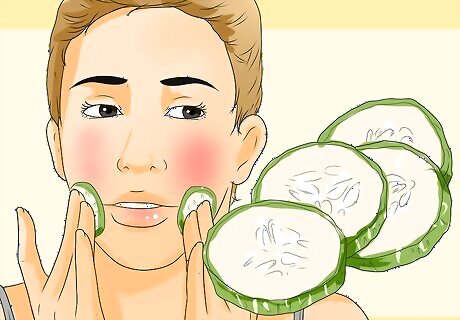
Apply cucumber slices on your skin. Cucumbers cool and moisturize irritated skin. Simply cut thin slices from a refrigerated cucumber and lay them across the affected area. The wider the cucumber, the better. If you don't have cucumbers, you can use a potato because it contain lots of water and also is moisturizing for the skin. If you're having a hard time getting the cucumber slices to stick, try moistening your skin with a little oil or lotion. It acts like a glue.
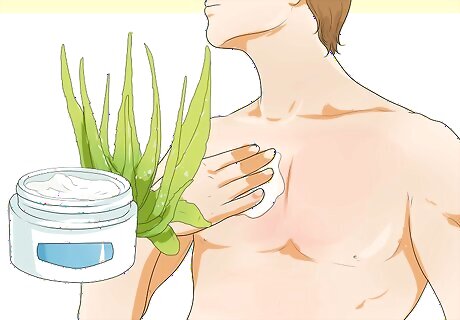
Apply aloe vera gel. Aloe is one of the few natural ingredients widely known to provide relief from sunburns. Rub aloe vera gel, or a gentle lotion containing this ingredient on the affected skin as soon as you notice redness or feel pain. Repeat several times per day to keep pain and irritation at bay. If you have an aloe plant, you can slit the leaves down the middle and squeeze them onto your sunburn to get a 100% natural soothing effect.
Treating and Healing the Skin
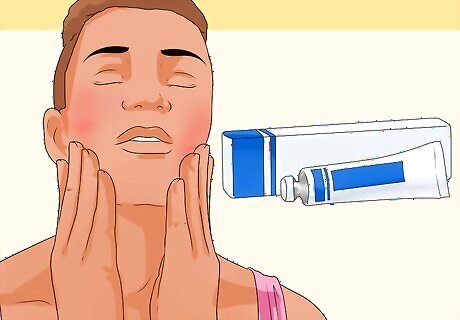
Apply a topical steroid ointment. Steroids are a type of drug that can reduce pain and swelling when they come in contact with the skin, making them perfect for sunburns. There are many different types of steroid ointments available over-the-counter. Hydrocortisone cream is one common choice. To apply, gently rub a pea-sized amount over the burned skin, reapplying every few hours as needed. Note that topical steroids are not the same kind of drugs infamous for being abused by athletes. These are anabolic steroids. Over-the-counter steroids are perfectly safe for use (except in some cases for very young children).
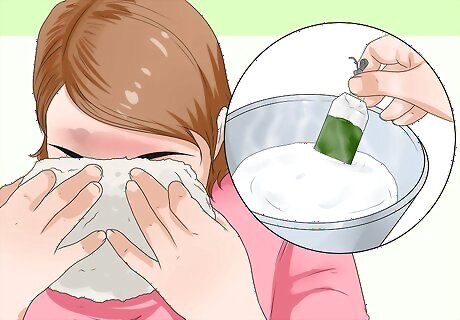
Bathe in a tea bath. According to some, the tannic acids in black tea can soothe burned skin and prevent peeling.To do this, first boil a pot of water. Steep five or six tea bags in the hot water for about five to ten minutes. Let the tea cool to room temperature. (Cool it in the fridge to reduce your wait time.) When it's cool, apply it to the burnt area with a rag or spray bottle and let it sit for half an hour. Alternatively, just hold one of the wet tea bags against the skin. Most sources recommend a black tea such as Earl Grey for this.
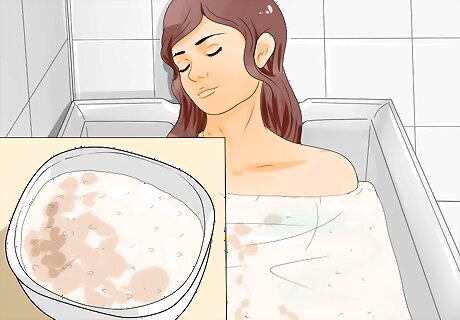
Bathe in an oatmeal bath. Although it may seem like an odd choice, oatmeal can be a helpful tool for dealing with sunburns and promoting healing. It has healing properties such as normalizing the skin’s pH level and soothing itchy and irritated skin. Try running a cool bath and mixing in two to three cups of plain (unsweetened) rolled oats. Soak in the bath for 20 minutes before rinsing off or proceeding to one of the other treatments. You can add 3/4 cup of baking soda to the bath as well for extra moisturizing power.
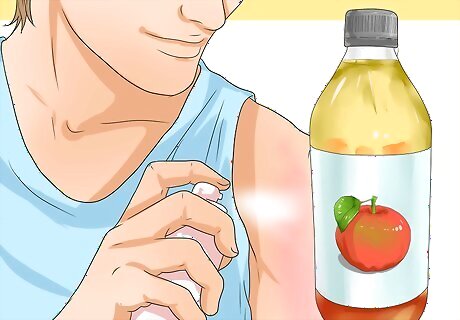
Spray vinegar water on the skin. Although it may seem strange, vinegar helps restore the pH balance of the skin, which helps soothe and heal the skin after a sunburn.First, take a cold shower. Next, fill a spray bottle with vinegar and gently mist the burnt skin. Let the vinegar mixture sit for about an hour. After, rinse it off or take another cold shower. The smell can be unpleasant during the hour-long waiting period, but your sunburn should be less likely to peel. Most types of vinegar should work, but according to some sources, apple cider vinegar works best.Avoid balsamic vinegar. The added sugar and coloring might irritate the skin.
Moisturizing the Skin
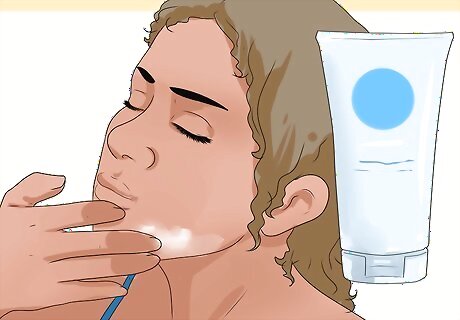
Apply moisturizer. As soon as you have noticed the sun damage, make sure that your skin is hydrated and supple. To put a little life back into dry sunburned skin, apply a gentle, hypoallergenic moisturizer to the affected areas. Most daily lotions should work well for this task. You also can try using a few drops of a neutral oil such as baby oil, olive oil or canola oil. Try to use a product without added fragrances or scents. The chemicals in these can sometimes irritate inflamed skin. Don't exfoliate your skin after getting sunburned—it would make things much worse. Instead, treat your skin like a newborn's skin, and give it a lot of hydration and good nutrients.
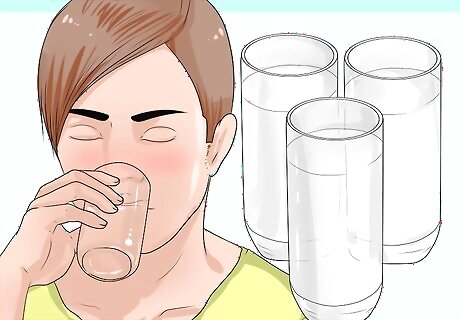
Drink water. Sunburned skin is extra dry and inflamed, so ensuring your body has a good supply of water can help keep it protected. Stay hydrated inside and out to prevent too much skin from peeling and flaking off. Mayo Clinic recommends about 9 to 13 cups of water a day. Water also can help with headaches, which are sometimes caused by sunburns.
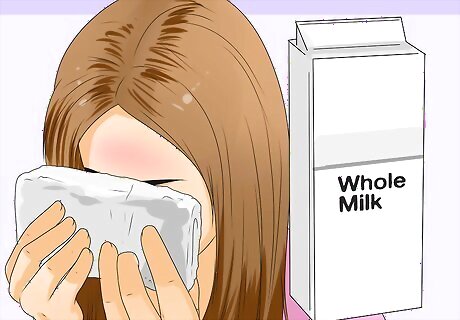
Apply whole milk to the skin. The fat in dairy products can help moisturize burnt skin by reducing pain and preventing peeling. Whole milk is usually the cheapest most convenient way milk to use. Try soaking a rag in whole milk and holding it against your burn in 20 minute intervals as a cold compress. Alternatively, add whole milk to a cool bath and let yourself soak. Don't use low- or non-fat milk for this. Without the fat, the milk loses much of its moisturizing properties. Whole-fat plain Greek yogurt also has the same effect when used as a lotion.Don't use sugary sweetened yogurts, which can get sticky and might irritate the skin.
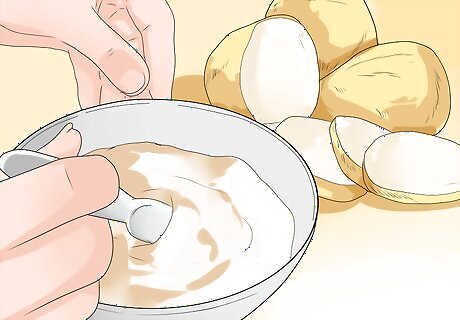
Put potato paste on the skin. The starch inside potatoes contains lots of water, so laying it against the skin is a great way to re-moisturize skin that's dried out from a sunburn. Grate a potato to turn it into a starchy paste. Then, rub this mixture against the skin and let it sit.Wash off with cold water after 20 minutes. You can also use a food processor to make your paste. If you do, cut your potato into small pieces first. Trying to grind up a whole potato at once can be too much for some processors.
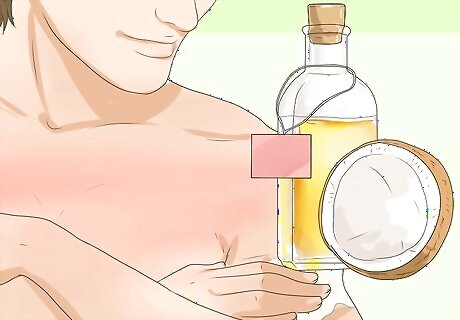
Rub coconut oil on the skin. While many natural oils will moisturize and soothe dry skin just as well as commercial lotions do, coconut oil is an even better choice. In addition to providing moisture and giving burnt skin a healthy glow, it also gently exfoliates, removes dead skin and promotes healing. Coconut oil is available in solid blocks from many health food stores and specialty grocers. It will liquefy from the heat of your hands.
















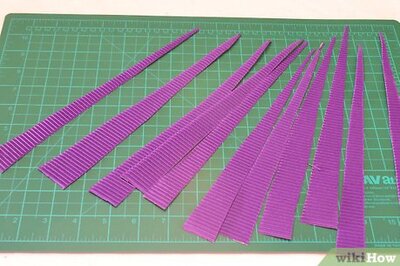

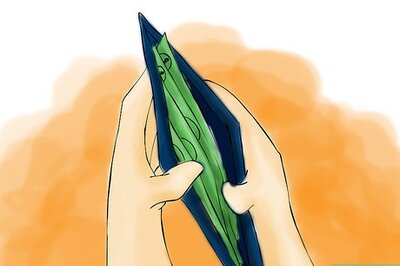
Comments
0 comment